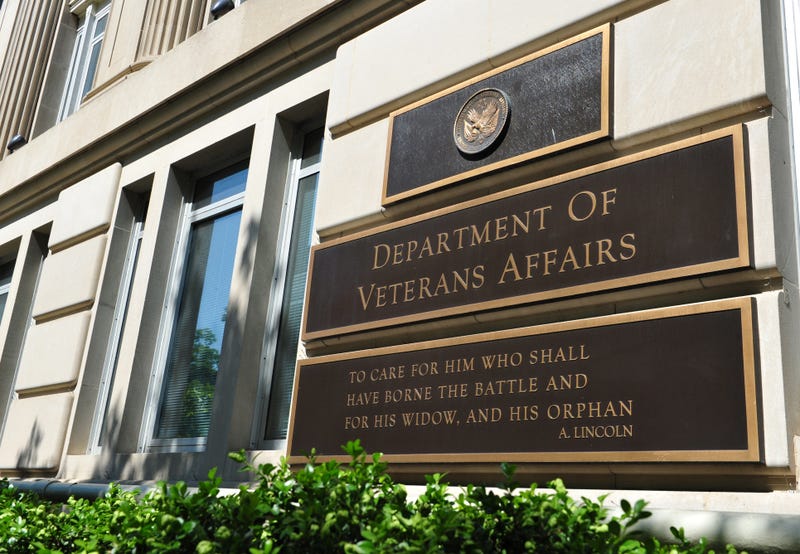The Department of Veterans Affairs once again avoided proposed cuts and would actually see a significant increase under the president's proposed budget plan released Monday.
The overall budget for VA will top $243 billion for the whole agency, including the Veterans Health Administration, which cares for 9 million veterans annually -- the largest healthcare provider in the United States -- and the Veterans Benefits Administration.
The $243 billion total would be nearly double what VA operated with 10 years ago. VA’s budget has consistently increased since the start of the wars in Afghanistan and Iraq.
President Donald Trump’s
budget proposal includes a 10.2 percent increase for VA’s overall budget from 2020, including:
- $109.5 billion (up $13.5 billion, or 14.1 percent above 2020) in discretionary funding and resources for health care, benefits and national cemeteries;
- $133.8 billion (up $9 billion, or 7.2 percent above 2020) in mandatory funding for benefit programs, including compensation and pensions, readjustment, housing and insurance;
- $10.2 billion (up $682 million from 2020) for mental health services, including $313 million specifically for suicide prevention programs (up $76 million, or 32 percent);
- $626 million for women’s health care (up $53 million, or 9 percent above 2020), including expanded gynecology services;
- $90 billion for VA medical services, including an unspecified amount for the VA Mission Act;
- $2.6 billion for electronic health record (EHR) modernization (up $1.2 billion from 2020);
- $137 million to process Blue Water Navy Vietnam veterans claims, including hiring staff. VA says it has already received more than 14,000 Blue Water Navy claims since Jan. 7 and has issued $7.5 million in retroactive benefits payments to 218 Blue Water veterans and their families.
If the president’s plan were enacted by Congress, VA would become the second-largest federal agency when measured by discretionary spending, with the Defense Department at the top. The Department of Health and Human Services was No. 2, but under Trump's plan would be cut by 9 percent.
VA is the only federal agency with a double-digit percent funding increase under the president’s plan. Even the Pentagon, which has nearly six times the budget of VA, is expected to only see a half-percent increase. All other non-defense agencies and programs are set to see about a 5 percent cut under Trump’s proposal.
Trump’s VA budget plan does include some movement of funds to cover increasing costs elsewhere in veterans’ spending, cuts that the administration has suggested before, including:
- Cutting cost-of-living expenses (lowering the overall budget by about $2.2 billion over 10 years) by rounding down veterans’ monthly benefit payments to the nearest whole dollar amount;
- Capping student veterans Post-9/11 GI Bill benefits for flight training;
- “Standardizing and enhancing” VA compensation and pension benefits (expected to save $11.6 billion over 10 years).
The suggestions have sparked controversy among veteran advocates and VA officials in the past. Advocates have criticized taking any funds away from veterans’ earned benefits.
Similar efforts on both fronts have previously been defeated in Congress.
The budget also features cuts to federal programs such as Medicare and Medicaid, which are also used by veterans, including those who may not qualify for VA health care.
“The budget request will ensure veterans and their families experience health improvements and technological modernization advancements,” VA Secretary Robert Wilkie said in a statement Monday. “That’s evidenced by the increase in budget funds we’re receiving — that not only increase health care services and benefits to veterans — but allow VA to lead the way in forward-thinking innovation.”
House Veterans Affairs Committee ranking member Rep. Phil Roe, R-Tenn., said Monday he supported the president’s plan, which he said represents a “quintupling of VA’s bottom line over the last 20 years.”
“There is no question that the department is in the midst of a critical transformation with respect to the delivery of healthcare and benefits to those who have served,” Roe said in a statement. “With this budget request, VA will be more prepared than ever before to ensure that those efforts bear fruit for generations of veterans to come.”
Want to get more connected to the stories and resources Connecting Vets has to offer? Click here to sign up for our weekly newsletter.

